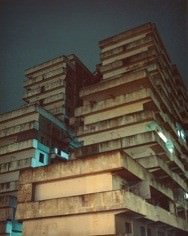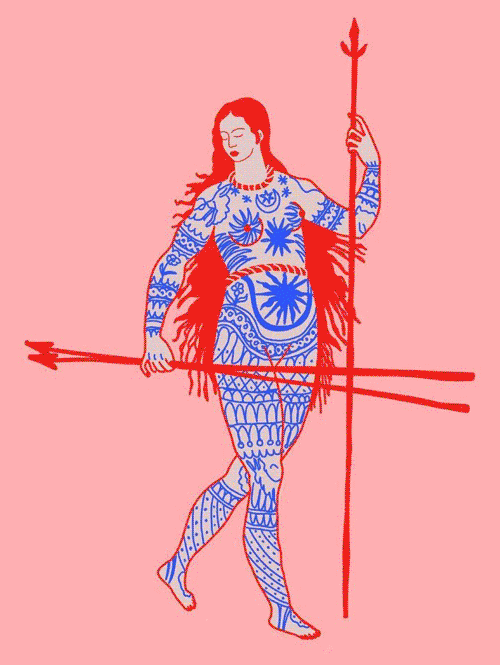Create an account
Welcome! Register for an account
La password verrà inviata via email.
Recupero della password
Recupera la tua password
La password verrà inviata via email.
-
- container colonna1
- Categorie
- #iorestoacasa
- Agenda
- Archeologia
- Architettura
- Arte antica
- Arte contemporanea
- Arte moderna
- Arti performative
- Attualità
- Bandi e concorsi
- Beni culturali
- Cinema
- Contest
- Danza
- Design
- Diritto
- Eventi
- Fiere e manifestazioni
- Film e serie tv
- Formazione
- Fotografia
- Libri ed editoria
- Mercato
- MIC Ministero della Cultura
- Moda
- Musei
- Musica
- Opening
- Personaggi
- Politica e opinioni
- Street Art
- Teatro
- Viaggi
- Categorie
- container colonna2
- container colonna1
Tobias Zielony – Vele
Dopo la prima personale italiana dell’artista: “The Hidden” (“Il nascosto”), presentata a Milano nel febbraio 2007, il progetto di Tobias Zielony “Vele”, promosso e prodotto dalla galleria Lia Rumma di Napoli, mostra un’animazione fotografica della durata di nove minuti e sedici secondi, ed in esclusiva, la parallela serie fotografica completa, costituita da 16 immagini.
Comunicato stampa
Segnala l'evento
Dopo la prima personale italiana dell’artista: “The Hidden” (“Il nascosto”), presentata a Milano nel febbraio 2007, il progetto di Tobias Zielony “Vele”, promosso e prodotto dalla galleria Lia Rumma di Napoli, mostra un’animazione fotografica della durata di nove minuti e sedici secondi, ed in esclusiva, la parallela serie fotografica completa, costituita da 16 immagini.
Per tutto il mese di ottobre 2007, e poi a più riprese nel corso dell’anno successivo, l’artista ha esplorato, come consuetudine per il suo lavoro, il modo di presentarsi, le pose e la maniera di “ammazzare il tempo” degli adolescenti dei quartieri periferici della città, rivolgendo lo sguardo ai loro luoghi d’incontro estemporanei nella zona orientale e nell’area nord di Napoli approdando, infine, alle Vele di Scampia.
Gravati da una serie di modifiche nell’esecuzione del progetto (di Francesco di Salvo del 1962-’75), di inadempienze di carattere gestionale e, più in generale, dalle densità eccessive e dal sottodimensionamento dei servizi del piano di zona 167, questi edifici dal carattere monumentale ed antiurbano, sono stati ormai condannati all’inabitabilità da una delibera comunale e ad essere sgomberati e demoliti (il lotto L composto di tre edifici è già stato interamente abbattuto, mentre in autunno verrà presentato dal Comune il piano dettagliato di riqualificazione o sostituzione delle restanti 4 vele del lotto M). Solo un centinaio di famiglie, tra assegnatari superstiti ed occupanti, popolano ancora gli edifici ridotti ormai a rovine spettrali.
Composta da 7000 immagini scattate di notte con una reflex digitale e montate a velocità diversa da quella reale, l’animazione fotografica “Le Vele di Scampia” restituisce in termini di linguaggio filmico il disagio di chi vive o frequenta questi luoghi. Si tratta del terzo lavoro video realizzato dall’artista dopo “The Deboard”, presentato nella sezione “Play Forward” del festival cinematografico di Locarno ‘08 e “Big Sexyland”, entrambi del 2008.
In questa parte di città che ospita, oltre ai quartieri di edilizia sovvenzionata e ai “parchi” delle cooperative private in convenzione, anche un campo rom – e quindi sui pianerottoli della Vela celeste (per il progettista l’ unità d’abitazione b), - modelli identitari d’oltreoceano (la sub-cultura hip-hop e la break dance, per esempio) declinazioni locali di codici globali, ed unici strumenti di reazione alla noia e al degrado, si sovrappongono e confondono con una forte identità locale.
L’opera di Tobias Zielony non si limita a riproporre una cifra stilistica, pur fortemente connotata, ma è prassi osservativa del reale. Per questo il suo lavoro ha subito a Napoli, più che in altre aree metropolitane, delle suggestioni suscitate dalla particolarità del contesto caratterizzato da un vertiginoso tasso di disoccupazione giovanile (50%) e in cui sussistono contemporaneamente estesi fenomeni d’illegalità e sparuti nuclei di resistenza culturale che hanno attivato, con una diffusa pratica associazionistica, iniziative sociali di vario tipo.
Tobias Zielony è nato nel 1973 a Wuppertal e si è formato alla Accademia di Arti Visive di Lipsia. Ha studiato fotografia documentaria all’Università del Galles, Newport. Ha ricevuto numerose borse di studio negli Stati Uniti, e dal settembre 2009 ha la cattedra di fotografia artistica alla Kunst Hochschule fuer Medien di Colonia. Attualmente vive e lavora a Berlino. Il progetto “Vele” è stato esposto alla Kunstverein di Amburgo (giugno-luglio 2010) e in quella di Dortmund (settembre-novembre 2010).
----
After “The Hidden”, the artist’s first solo exhibition in Italy, which was held in Milan in February 2007, Tobias Zielony’s “Vele” project, promoted and produced by Galleria Lia Rumma in Naples, includes a photographic animation that lasts nine minutes and sixteen seconds and, as an exclusive exhibit, the complete accompanying photographic series of 16 pictures.
For the entire month of October 2007, and then on a number of occasions during the following year, the artist worked in his usual way, examining how adolescents like to appear to others, the poses they adopt, and the way they “kill time” in the suburban districts of the city. He looked at the places they choose for meeting up at in the eastern area and in the north of Naples, eventually ending up at the Vele in Scampia.
Hampered by a series of modifications to the original plans (by Francesco di Salvo, 1962-75), by management failures and, in more general terms, by the excessive housing density and insufficient services facilities in the 167 zone plan, these monumental, anti-urban buildings have now been condemned as uninhabitable by a municipal resolution. They are to be cleared and demolished. Plot L, with three buildings, has already been razed to the ground, and in the autumn the local municipality will present its detailed plan for redeveloping or replacing the remaining four “sails” in plot M. Only about a hundred families – the last remaining assignees and occupants – still live in the buildings, which have now been reduced to ghostlike ruins.
Consisting of 7000 shots taken at night with a digital reflex camera, and edited at an artificial speed, the Le Vele di Scampia photographic animation uses the language of cinema to convey the deprivations of those who live in or frequent these places. This is the artist’s third video work after The Deboard, which was shown in the “Play Forward” section of the 2008 Locarno film festival, and Big Sexyland, of the same year.
As well as the subsidised-housing districts and the authorised private-cooperative “parks”, this part of the city is also home to a Rom camp – on the landings of the light-blue Vela (“housing units” for the designer) – with American sub-culture models (hip hop and breakdance, for example), which are local versions of global codes and the only means of reacting to boredom and urban decay, overlapping and interacting with a very strong local identity.
Tobias Zielony’s work goes beyond simply presenting a stylistic code, however distinctive it may be, for his is a process that observes reality. This is why, more than in other metropolitan areas, his work has been influenced by the very particular characteristics of the context, which is afflicted by a staggering level of unemployment among the young (50%), in which there are both widespread forms of illegality and some sparse centres of cultural resistance which, through a pervasive system of associations, has led to social initiatives of various types.
Tobias Zielony was born in Wuppertal in 1973 and studied at the academy of visual arts in Leipzig. He studied documentary photography at the University of Wales, Newport. He has received several scholarships in the United States and, since September 2009, he has held the chair of Artistic Photography at the Kunsthochschule für Medien in Cologne. He currently lives and works in Berlin. The “Vele” project was shown at the Kunstverein in Hamburg (June-July 8, 2010) and in Dortmund (September-November 2010).
Per tutto il mese di ottobre 2007, e poi a più riprese nel corso dell’anno successivo, l’artista ha esplorato, come consuetudine per il suo lavoro, il modo di presentarsi, le pose e la maniera di “ammazzare il tempo” degli adolescenti dei quartieri periferici della città, rivolgendo lo sguardo ai loro luoghi d’incontro estemporanei nella zona orientale e nell’area nord di Napoli approdando, infine, alle Vele di Scampia.
Gravati da una serie di modifiche nell’esecuzione del progetto (di Francesco di Salvo del 1962-’75), di inadempienze di carattere gestionale e, più in generale, dalle densità eccessive e dal sottodimensionamento dei servizi del piano di zona 167, questi edifici dal carattere monumentale ed antiurbano, sono stati ormai condannati all’inabitabilità da una delibera comunale e ad essere sgomberati e demoliti (il lotto L composto di tre edifici è già stato interamente abbattuto, mentre in autunno verrà presentato dal Comune il piano dettagliato di riqualificazione o sostituzione delle restanti 4 vele del lotto M). Solo un centinaio di famiglie, tra assegnatari superstiti ed occupanti, popolano ancora gli edifici ridotti ormai a rovine spettrali.
Composta da 7000 immagini scattate di notte con una reflex digitale e montate a velocità diversa da quella reale, l’animazione fotografica “Le Vele di Scampia” restituisce in termini di linguaggio filmico il disagio di chi vive o frequenta questi luoghi. Si tratta del terzo lavoro video realizzato dall’artista dopo “The Deboard”, presentato nella sezione “Play Forward” del festival cinematografico di Locarno ‘08 e “Big Sexyland”, entrambi del 2008.
In questa parte di città che ospita, oltre ai quartieri di edilizia sovvenzionata e ai “parchi” delle cooperative private in convenzione, anche un campo rom – e quindi sui pianerottoli della Vela celeste (per il progettista l’ unità d’abitazione b), - modelli identitari d’oltreoceano (la sub-cultura hip-hop e la break dance, per esempio) declinazioni locali di codici globali, ed unici strumenti di reazione alla noia e al degrado, si sovrappongono e confondono con una forte identità locale.
L’opera di Tobias Zielony non si limita a riproporre una cifra stilistica, pur fortemente connotata, ma è prassi osservativa del reale. Per questo il suo lavoro ha subito a Napoli, più che in altre aree metropolitane, delle suggestioni suscitate dalla particolarità del contesto caratterizzato da un vertiginoso tasso di disoccupazione giovanile (50%) e in cui sussistono contemporaneamente estesi fenomeni d’illegalità e sparuti nuclei di resistenza culturale che hanno attivato, con una diffusa pratica associazionistica, iniziative sociali di vario tipo.
Tobias Zielony è nato nel 1973 a Wuppertal e si è formato alla Accademia di Arti Visive di Lipsia. Ha studiato fotografia documentaria all’Università del Galles, Newport. Ha ricevuto numerose borse di studio negli Stati Uniti, e dal settembre 2009 ha la cattedra di fotografia artistica alla Kunst Hochschule fuer Medien di Colonia. Attualmente vive e lavora a Berlino. Il progetto “Vele” è stato esposto alla Kunstverein di Amburgo (giugno-luglio 2010) e in quella di Dortmund (settembre-novembre 2010).
----
After “The Hidden”, the artist’s first solo exhibition in Italy, which was held in Milan in February 2007, Tobias Zielony’s “Vele” project, promoted and produced by Galleria Lia Rumma in Naples, includes a photographic animation that lasts nine minutes and sixteen seconds and, as an exclusive exhibit, the complete accompanying photographic series of 16 pictures.
For the entire month of October 2007, and then on a number of occasions during the following year, the artist worked in his usual way, examining how adolescents like to appear to others, the poses they adopt, and the way they “kill time” in the suburban districts of the city. He looked at the places they choose for meeting up at in the eastern area and in the north of Naples, eventually ending up at the Vele in Scampia.
Hampered by a series of modifications to the original plans (by Francesco di Salvo, 1962-75), by management failures and, in more general terms, by the excessive housing density and insufficient services facilities in the 167 zone plan, these monumental, anti-urban buildings have now been condemned as uninhabitable by a municipal resolution. They are to be cleared and demolished. Plot L, with three buildings, has already been razed to the ground, and in the autumn the local municipality will present its detailed plan for redeveloping or replacing the remaining four “sails” in plot M. Only about a hundred families – the last remaining assignees and occupants – still live in the buildings, which have now been reduced to ghostlike ruins.
Consisting of 7000 shots taken at night with a digital reflex camera, and edited at an artificial speed, the Le Vele di Scampia photographic animation uses the language of cinema to convey the deprivations of those who live in or frequent these places. This is the artist’s third video work after The Deboard, which was shown in the “Play Forward” section of the 2008 Locarno film festival, and Big Sexyland, of the same year.
As well as the subsidised-housing districts and the authorised private-cooperative “parks”, this part of the city is also home to a Rom camp – on the landings of the light-blue Vela (“housing units” for the designer) – with American sub-culture models (hip hop and breakdance, for example), which are local versions of global codes and the only means of reacting to boredom and urban decay, overlapping and interacting with a very strong local identity.
Tobias Zielony’s work goes beyond simply presenting a stylistic code, however distinctive it may be, for his is a process that observes reality. This is why, more than in other metropolitan areas, his work has been influenced by the very particular characteristics of the context, which is afflicted by a staggering level of unemployment among the young (50%), in which there are both widespread forms of illegality and some sparse centres of cultural resistance which, through a pervasive system of associations, has led to social initiatives of various types.
Tobias Zielony was born in Wuppertal in 1973 and studied at the academy of visual arts in Leipzig. He studied documentary photography at the University of Wales, Newport. He has received several scholarships in the United States and, since September 2009, he has held the chair of Artistic Photography at the Kunsthochschule für Medien in Cologne. He currently lives and works in Berlin. The “Vele” project was shown at the Kunstverein in Hamburg (June-July 8, 2010) and in Dortmund (September-November 2010).
09
ottobre 2010
Tobias Zielony – Vele
Dal 09 ottobre al 31 dicembre 2010
arte contemporanea
Location
GALLERIA LIA RUMMA
Napoli, Via Vannella Gaetani, 12, (Napoli)
Napoli, Via Vannella Gaetani, 12, (Napoli)
Orario di apertura
da martedì a sabato 10.30-13.30 / 15.30-19.30
Vernissage
9 Ottobre 2010, ore 11
Autore









